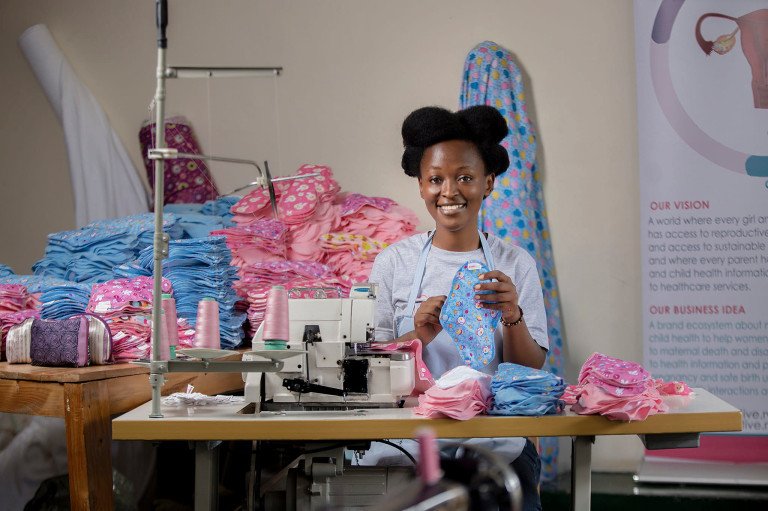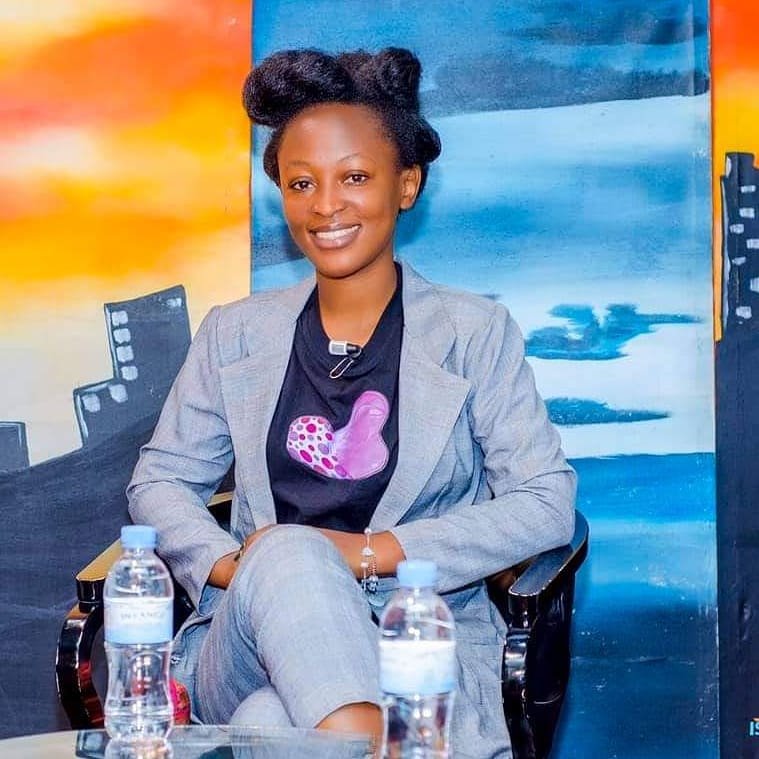Menstrual health and hygiene are essential for the well-being and empowerment of women and adolescent girls. However, in Africa, many face significant barriers that hinder their ability to manage menstruation with dignity. On any day, about 300 million women around the world are having their period. However, 500 million women and girls don’t have the products (like pads) or clean places (like bathrooms with water and soap) they need to manage their periods safely and comfortably. This lack of access can make it hard for them to attend school, work, or participate in daily activities. To address this problem, Blandine Umuziranenge founded Kosmotive. This social enterprise offers affordable and eco-friendly reusable sanitary pads, as well as menstrual wellness education, to girls and women in Africa who have limited or no access to sanitary towels, starting in Rwanda.
Period poverty is a profound issue affecting many. Statistics show that one in ten girls in Africa misses school due to menstruation, severely impacting their education and prospects. For instance, a study in Kenya found that 95% of menstruating girls missed one to three school days during their periods. These interruptions can entrap many in cycles of poverty, limiting their opportunities.
The problem goes beyond the absence of products. Cultural taboos and discriminatory norms surrounding menstrual flow lead to bullying, shame, and even gender-based violence. Consequently, countless girls and women lack the information and resources necessary for safe and hygienic menstruation. The dire consequences negatively affect their education, health, and overall development.
Kosmotive’s holistic approach
Recognising the complexities of menstrual health challenges, Kosmotive adopts a comprehensive approach to tackling period poverty. The organisation provides sanitary products and addresses the lack of education on menstrual management. This multi-faceted strategy is crucial, as effective solutions must include education and improvements in infrastructure. Thus, its KosmoPad initiative has achieved remarkable success by building on this approach.
These eco-friendly, reusable sanitary pads have reached over 54,000 girls, enabling them to continue their education during menstruation. Each KosmoPad can be reused for up to two years, helping families save approximately 88% on disposable pads. Furthermore, the pads are made without harmful chemicals, providing a safer and more comfortable option.

Umuziranenge’s commitment to women’s health has garnered local and international recognition, including being named one of the Top 50 African Business Heroes in 2021. In her commitment to empowerment, Blandine Umuziranenge has created jobs at Kosmotive’s manufacturing plant for underprivileged women, furnishing them with income and a sense of purpose. By employing women to produce these pads, Kosmotive addresses practical needs while fostering community support.
Kosmotive’s impact extends beyond individual users. By enhancing menstrual health and hygiene, the organisation contributes to broader economic growth in Rwanda. As more girls gain access to education and menstrual products, they can pursue careers and leadership roles in their communities, helping to break the cycle of poverty and inequality that has long affected women in Africa.
As the business continues to drive positive change, Umuziranenge’s vision for the future remains ambitious. She aims to expand its reach by increasing the availability of menstrual products and education across Africa. By ensuring that more adolescent girls have access to essential resources, she believes they can view menstruation not as a source of shame but as a source of pride and strength.
Through Kosmotive, Blandine Umuziranenge is shifting the narrative around African menstrual health. With sustained support, a future where every girl can manage her period safely and with dignity is within reach, paving the way for greater gender equality.



